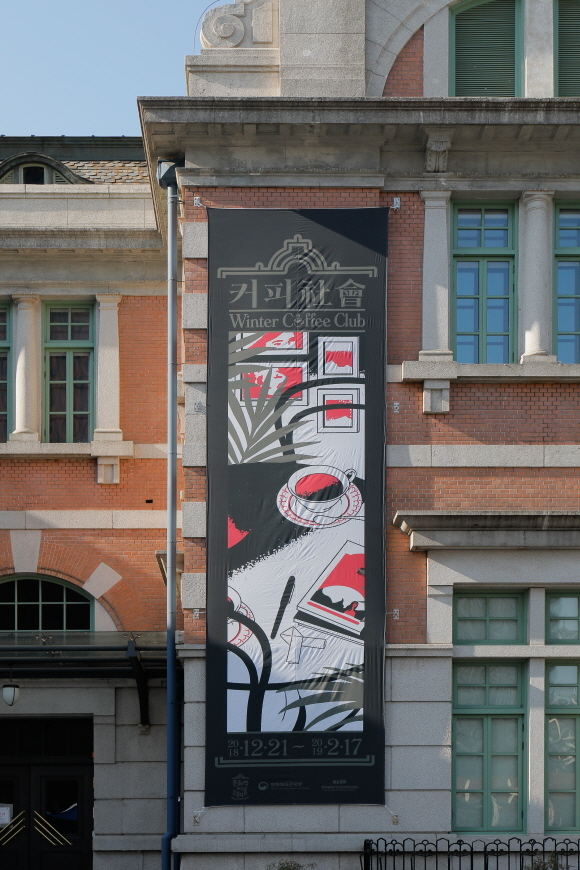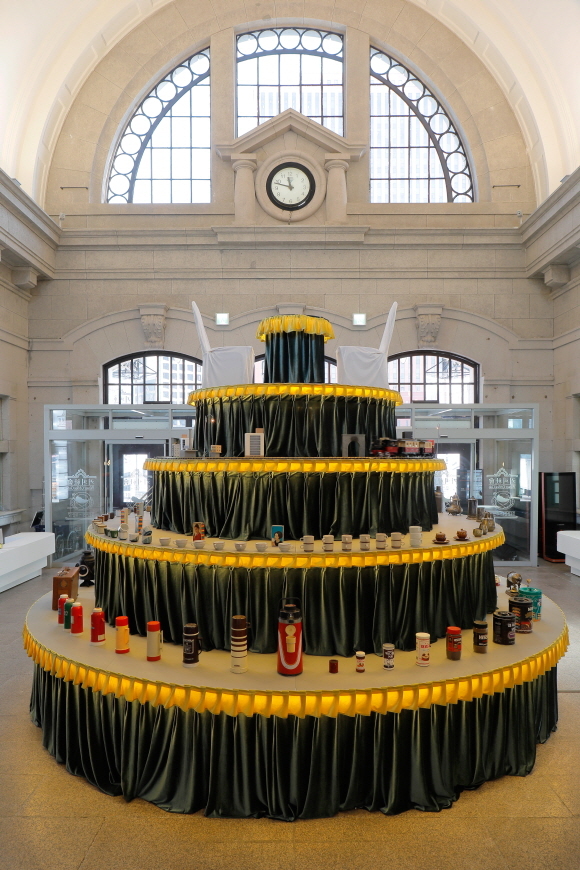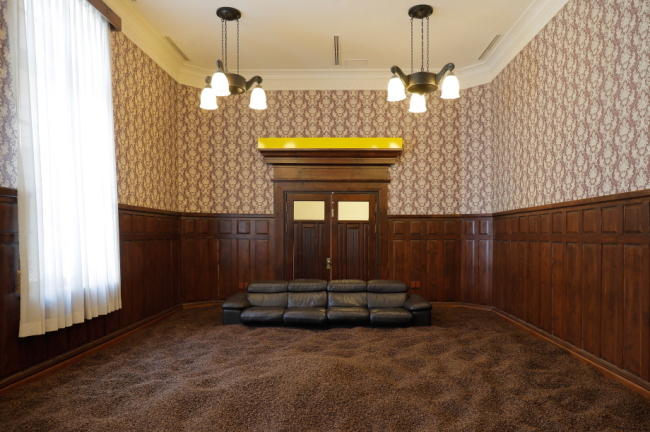More than a century has passed already since Koreans began to consume coffee near the close of the 19th century. Throughout the years, it has surely established its position. In downtown areas, there are cafes one after another. According to the industry, the average Korean drinks 500 cups of coffee in a year.
Ongoing exhibition “Winter Coffee Club,” hosted by the Korea Crafts & Design Foundation under the Ministry of Culture, Sports and Tourism, reflects on the changing history of coffee culture and how it has affected our society.
 |
“Winter Coffee Club” banner hangs in front of Culture Station Seoul 284 (KCDF) |
The exhibition is being held at Culture Station Seoul 284, also known as the old Seoul Station. According to the KCDF, the establishment is a symbolic space of Korea’s modern and contemporary times. It was a public space from where coffee culture began to spread.
“The exhibition hopes to read the socio-historical meaning of coffee in Korea. It has more meaning than just being a form of food,” curator Chung Mi-hwa said at a press event held Thursday.
“The train station is a place where a person and a person, a city and a city meet, creating diverse culture. It has similar characteristics to cafes these days.”
The exhibition curates stories related to coffee through various forms of art, such as drawings, photos, videos, graphic designs and illustrations. Around 40 teams of artists participated in the project. Designers, architects, writers, illustrators, performers, painters and baristas have displayed their own interpretations of coffee.
 |
“Coffee, Cake, Tree” by Park Gil-jong (KCDF) |
“It wouldn’t be an exaggeration to say that coffee has shaped our modern literature,” said professor Shin Bum-soon from the Department of Korean Language and Literature at Seoul National University. For the exhibition, Shin analyzed references to coffee in the works of Korea’s modern literature. A team of graphic designers visualized Shin’s analysis.
“With the emergence of coffee and teahouses, modern writers could meet and talk to each other. It was the root of arguments and debates, paving way for the emergence of a modern society,” he said.
 |
“Room” by Baek Hyun-jin (KCDF) |
One of the eye-catching works of art is Baek Hyun-jin’s “Room.” The artist filled an old room at the station with 1.3 tons of coffee beans, under the idea of creating a playground for adults. Visitors can walk on the floor flowing with the beans and fully feel the texture under their soles.
The exhibition of “Winter Coffee Club” continues until Feb. 21. For more information, check Culture Station Seoul 284’s homepage at www.seoul284.org/english.
By Im Eun-byel (
silverstar@heraldcorp.com)










